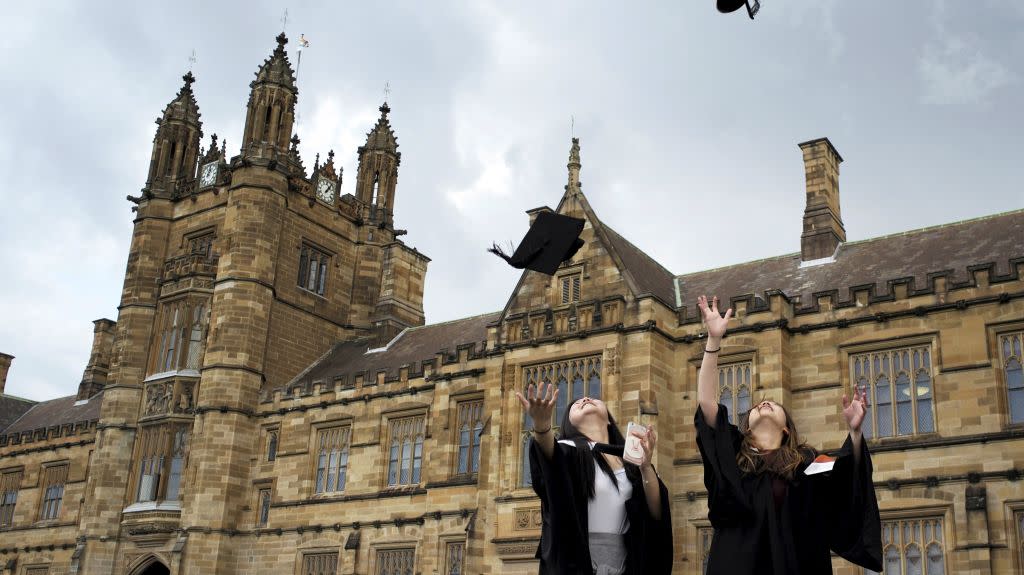Australian professors and universities are being shamed into apologizing for offending Chinese students

Chinese students at universities in Australia have their professors walking on eggshells.
Since May, there have been at least four incidents where international students from China studying in Australia have pressured staff into apologizing for what they deemed as offensive comments. The most recent such incident occurred last week, when students at the University of Newcastle posted a video of a professor and student arguing. The professor had referred to Taiwan as an independent country, and the student took issue with his remarks. “Chinese students is [sic] one-third of this classroom. You make us feel uncomfortable,” he said.
The incident shows how overseas universities are facing increasing pressure from Chinese students to not say anything that violates Communist Party orthodoxy, as Chinese students studying abroad become increasingly bold in exerting their nationalism.
The University of Newcastle video was first posted in an article in Chinese-language media outlet Sydney Today (link in Chinese), which subsequently spread to other Chinese media outlets. The piece revealed the first name of the professor in question, though blurred out his surname and face. A simple Google search of “Nimay” and “University of Newcastle” yields the result of Nimay Kalyani, a professor at the university’s business school.

The University of Newcastle told the Australian newspaper that they had “engaged” with the Chinese consulate (paywall) over the incident, adding in a statement that it was “disappointed that there was not an opportunity for the issues raised to be resolved through our normal process in a fair and respectful manner.”
When asked by Quartz whether he was the professor in the video, Kalyani referred Quartz to the statement from the University of Newcastle.
Days before the University of Newcastle incident occurred, a similar news item hit Chinese media. Students at the University of Sydney noticed that an IT professor displayed a map showing Arunachal Pradesh, Aksai Chin, and Ladakh as part of India. These three regions are part of a border region that’s contested by India and China. On August 16, WeChat account directed at Chinese students in Sydney published an article (link in Chinese) purporting to show a conversation between two students, with one suggesting they “report” the professor. The article also called out the professor by name, Khimji Vaghjiani, and posted his full name, headshot, and e-mail address in the piece.

The news spread across mainstream Chinese media outlets. Last week, Vagjiani apologized to students via a statement to Australian TV network SBS.
“Over 18 months ago, I used an out-of-date map, downloaded from the Internet, when discussing characteristics of IT entrepreneurs around the world,” he said. “This was a genuine mistake and I regret any offence this may have caused.” Vagjiani did not immediately respond to Quartz’s request for comment.
These incidents follow two other similar ones that took place this summer.
In early August, a computer science professor at Australian National University came under fire on Chinese social media after he was photographed lecturing beside a slide that read, in English and Chinese, “I will not tolerate students who cheat.” Students took issue with the implications of the translation, and the professor subsequently wrote a lengthy apology.
In May, Chinese students at Monash University spotted an online test question which, via multiple choice, joked that Chinese officials only tell the truth when they are “drunk or careless.” According to the Australian (paywall), Monash University then placed the course’s lecturer on suspension. In 2012, the school was the first Australian university ever to receive a license to operate in China, via a partnership with Southeast University in Suzhou.
These incidents don’t quite compare in scale to Cambridge University Press’s initial decision to censor an academic journal in China, or the Chinese consulate’s attempts to quash a forum (paywall) at the University of Sydney discussing the Tiananmen Square massacre. But they suggest that even within the semi-private confines of their classrooms, professors will now increasingly fear the consequences of saying anything that might offend their Chinese students.

Sign up for the Quartz Daily Brief, our free daily newsletter with the world’s most important and interesting news.
More stories from Quartz:

